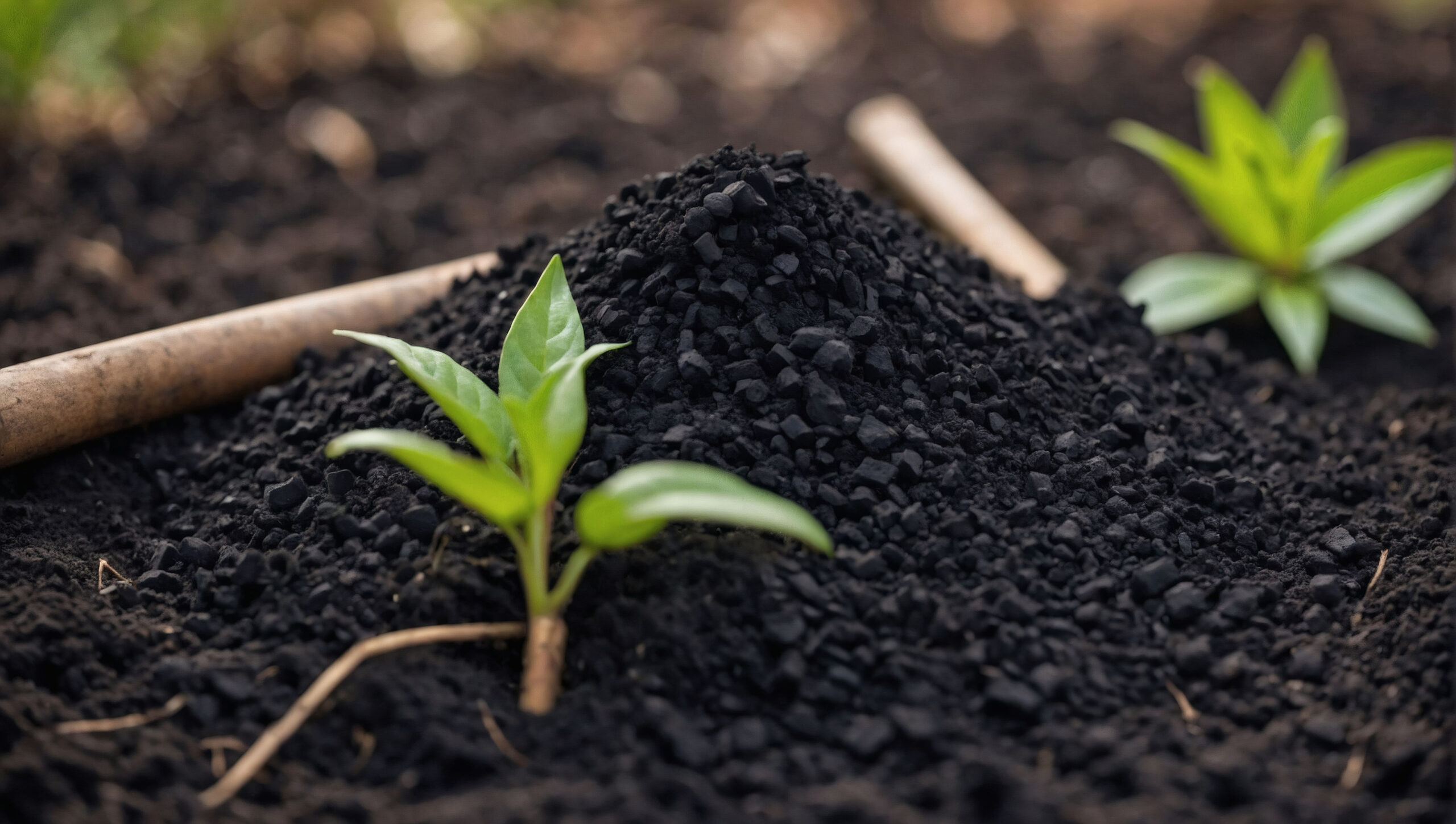
At Canadian Biogas, we harness the transformative power of biochar to enhance soil health, conserve water, support agriculture, mitigate climate change, and promote socio-economic development. Produced from digestate and wood waste, our biochar offers a myriad of benefits that contribute to a sustainable and resilient future.
Biochar: What It Is and How We Make It
Biochar is a stable, carbon-rich form of charcoal created through the pyrolysis process, where organic materials such as wood waste and digestate from dry anaerobic digestion are heated in the absence of oxygen. This process not only captures carbon but also produces a substance that significantly enhances soil properties and provides numerous environmental benefits.
Enhancing Soil Health
Biochar’s porous structure improves soil aeration, nutrient retention, and microbial activity. When applied to soil, it enhances the availability of essential nutrients, promoting healthier and more robust plant growth. The increased microbial activity also supports the breakdown of organic matter, further enriching the soil.
Water Savings and Conservation
One of the remarkable properties of biochar is its ability to retain water. The porous nature of biochar helps soils to retain moisture, reducing the need for frequent irrigation. This is particularly beneficial in arid and semi-arid regions where water is a scarce resource. By improving the soil’s water-holding capacity, biochar contributes to more efficient water use in agriculture.
Supporting Sustainable Agriculture
Incorporating biochar into agricultural practices can lead to increased crop yields and reduced dependency on chemical fertilizers. Biochar enhances soil fertility, which in turn supports healthier plant growth and higher productivity. This sustainable approach not only boosts agricultural output but also reduces the environmental impact associated with conventional farming practices.
Mitigating Climate Change
Biochar production is a carbon-negative process, meaning it sequesters more carbon than it emits. By locking carbon into the soil for hundreds to thousands of years, biochar helps mitigate climate change. This process reduces the amount of carbon dioxide in the atmosphere, contributing to global efforts to limit climate change and its impacts.
Socio-Economic Benefits
The production and use of biochar can create economic opportunities, especially in rural and agricultural communities. By converting waste materials into valuable biochar, new jobs can be created in the production, distribution, and application of biochar. Additionally, farmers can save on costs associated with water and fertilizer use, improving their economic stability.
Reforesting Soils and Woods
Biochar plays a crucial role in reforestation and soil restoration efforts. Its ability to improve soil quality makes it an excellent tool for rehabilitating degraded lands. When applied to reforestation projects, biochar enhances seedling survival rates and growth, supporting the re-establishment of healthy forest ecosystems. This not only restores biodiversity but also enhances carbon sequestration, further combating climate change.
A Holistic Approach to Sustainability
At Canadian Biogas, our commitment to sustainability drives us to maximize the value of organic waste through innovative technologies. By producing biochar from digestate and wood waste, we close the loop on waste management, transforming byproducts into valuable resources that benefit the environment, agriculture, and communities.
Conclusion
The biochar produced by Canadian Biogas is more than just a soil amendment; it’s a powerful tool for enhancing soil health, conserving water, supporting sustainable agriculture, mitigating climate change, and fostering socio-economic development. By integrating biochar into various environmental and agricultural practices, we can build a more sustainable and resilient future for generations to come.